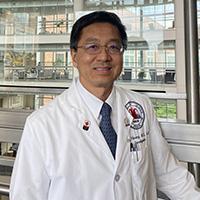Just recently we highlighted a brand-new research study that may respond to the concern “how come individuals with ME/CFS have absolutely typical looking muscle cells struggle with post exertional despair?”. This was an interesting research study that proposed a biological system for the exhausted and cramping muscles that so drain ME/CFS patients.
In other words, it appears that some CFS/ME clients may be struggling with cellular tension. The outcome of the tension is that a protein called WASF3 intereferes with their capability to transform oxygen and glucose into energy. So some individuals with ME/CFS can’t renew the energy shops in their muscles as quick as healthy individuals can.

Medical News Flash: Why ME/CFS? Did you enter into the job hypothesising that there could be a link in between WASF3 and ME/CFS, or was it a pleased mishap?
Dr Hwang: It was a ready mishap. We had actually been studying the guideline of mitochondria by the altered TP53 gene which triggers the early-onset cancer condition Li-Fraumeni syndrome (LFS). The client had LFS however likewise persistent tiredness sign which was basically the reverse of what we had actually formerly reported in people with LFS. We felt obliged to examine this disparity, whether the tiredness signs were undoubtedly associated to altered p53.
MNB: Do you have a continuous interest in ME/CFS?
Dr Hwang: Yes, having actually recognized WASF3 in the mitochondria, we are now really thinking about studying its function in ME/CFS.
MNB: What was the most unexpected element of the outcomes?
Dr Hwang: How tough it can be to discover prospective genes moderating evasive conditions like ME/CFS. It appears to have actually needed the positioning of several components: the build-up of a vital limit of background info and resources, such as saved client samples by the NIH ME/CFS detectives Drs. Avindra Nath and Brian Walitt; the ideal ME/CFS client who did her research and had remarkable effort; somebody with the suitable medical and clinical background to listen to the client; and the insights and real work of talented researchers Drs. Ping-yuan Wang and Jin Ma, to call simply a couple of.
MNB: Some research studies are discovering a possible link in between ER tension, swelling, and conditions such as rheumatic and heart disease. Can you discuss what might trigger the ER tension? Is persistent swelling a suspect?
Dr Hwang: All excellent concerns for which I make certain there are some responses understood by specialists in the particular fields, however I would simply be hypothesizing. And yes, I think that there are lots of proof connecting swelling or immune systems to ME/CFS. My easy understanding is that the cells are not delighted, such as due to a viral infection, and they install a tension action, possibly harming the mitochondria at the same time, purposefully or accidentally.
MNB: How do you hope this research study will affect how ME/CFS is detected and dealt with? What additional research study do you believe is required in this location?
Dr Hwang: In regards to WASF3 as a diagnostic marker, I require to clarify the following:
1) We do not think that WASF3 is the reason for ME/CFS however rather is among the elements moderating the energy shortage in muscle.
2) We observed increased levels of WASF3 in a subset of the 14 ME/CFS clients. Please comprehend this is a little sample size. So WASF3 levels in muscle might discuss tiredness in just a subset of clients with ME/CFS medical diagnosis.
3) There are no medical or blood tests readily available to look for WASF3 levels. In our publication, we utilized skin biopsy cells grown in tissue culture and muscle tissue samples acquired by needle biopsy to determine WASF3 protein levels. These tests can not be performed in the centers by doctors. Notably, even if they could, more research studies are required in order to comprehend the significance of these outcomes.
It would be practical to have other detectives verify and extend our findings. Once again, we require to evaluate whether it is possible to target WASF3 in ME/CFS clients and enhance their muscle bioenergetic profile.
MNB: Will you be continuing to check out WASF3 and ME/CFS? Any tips about what’s next?
Dr Hwang: Yes. It is exploratory however we require to see if we can target WASF3 in ME/CFS clients and repair the bioenergetic problem that we have actually explained.
MNB: Do you have anything you want to inform our readers or individuals who are dealing with ME/CFS?
Dr Hwang: In our laboratory we are dealing with our discovering the very best that we can understanding that treatment is a top priority.
Our genuine thanks go to the NIH media centre and Dr Hwang for their generosity and kindness with their time.